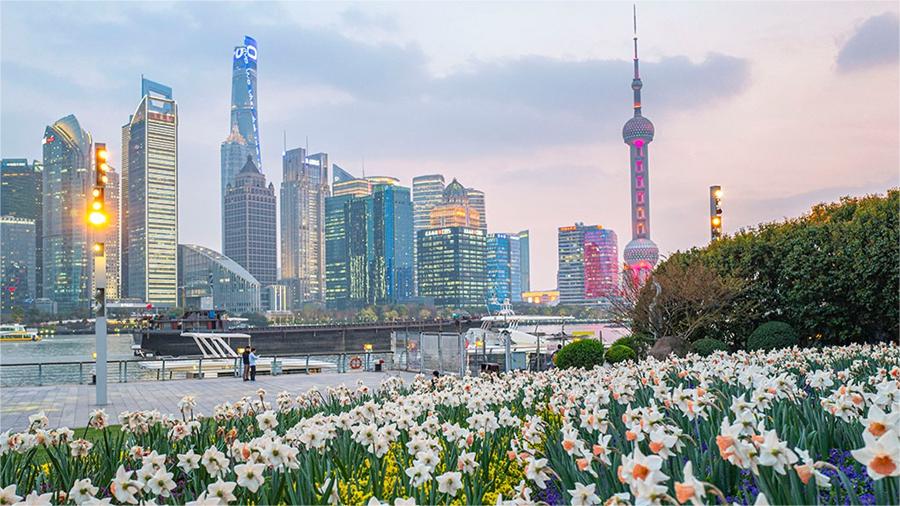China's rapid development impresses Suriname leader

Chandrikapersad Santokhi
President of Suriname Chandrikapersad Santokhi revisited his childhood links with China during an exclusive interview with China Daily on Sunday in Beijing.
"When I was a little kid of three or four, my mother used to work in a Chinese supermarket," Santokhi said, adding that today he is familiar with Chinese traditions, culture and cuisine because of it.
He said his childhood interactions with the Chinese community have helped him understand and communicate with the Chinese people better.
The largest concentration of overseas Chinese living in the Caribbean is in Suriname, a scenic country situated on the northern coast of South America.
Last year, the government of Suriname celebrated the 170th anniversary of Chinese settlement in the country as a national event.
Santokhi praised "the strength of the Chinese community in Suriname", and noted that even in remote areas of his country, there are "the Chinese groceries, Chinese supermarkets and Chinese businesses to serve the community".
"They're always one of (those) supporting the economic growth," he said.
China and Suriname established diplomatic ties 48 years ago, with Suriname being one of the first countries in the region to build diplomatic relations with China.
Santokhi reiterated the pledge his nation made at that time about the Taiwan question and underscored Suriname's adherence to the one-China principle.
"We are reiterating that China is a big country, that China is in a process of reunification, and that we are supporting that reunification process," he said.
Santokhi arrived in Beijing on Thursday for his first state visit to China. The visit is scheduled to end on Wednesday. This year marks the fifth anniversary of the China-Suriname strategic cooperative partnership, which was established in 2019.
President Xi Jinping held a welcoming ceremony for Santokhi on Friday in Beijing. They held talks and witnessed the signing of cooperation agreements in areas such as economy, trade, investment, green development, the digital economy and education.
Santokhi referred to food security as a promising area of cooperation because the world is confronted with the challenge of food scarcity while the world population is increasing.
"In Suriname, we have a lot of fertile land, and here is China with modern technology in the area of food production, food processing and food security. We can cooperate and deliver our contribution to food security for the world."
He also hailed China's role "in the area of supporting the regional integration" and boosting connectivity in terms of roads and bridges in South America.
The two governments signed a cooperation plan in 2019 to jointly advance the construction of the Belt and Road.
In contrast to voices of suspicion and smear campaigns against the Belt and Road Initiative, Santokhi said, "The Belt and Road Initiative is one that is playing a very important role in bringing development for a lot of nations and people, and we are making good use of it and we're benefiting from the BRI."
Santokhi hailed the roads built in Suriname to help villagers in remote areas and hospitals that served to control the COVID-19 pandemic.
He added that the BRI has helped boost connectivity in the region and made his country an economic hub in South America.
During his ongoing China tour, Santokhi said he is getting a better understanding of China's past and present, including the achievements made since 1978, when the process of reform and opening-up started.
He said that "hard work" and "unity" were the driving forces behind China's success.
China's technical assistance programs and financial aid are very important, but the philosophy "is more important to learn", he said. "I hope that we can learn a lot from China based on its history and spirit, and we can become a country which can be also very influential," Santokhi said, adding that he hoped Suriname would become a strong and developed country.
Photos
 People fly Kongming lanterns to celebrate New Year of calendar of Dai ethnic group
People fly Kongming lanterns to celebrate New Year of calendar of Dai ethnic group People savor beautiful sights of spring flowers across China
People savor beautiful sights of spring flowers across China Improved ecological environment attracts common cranes to Karamay, NW China's Xinjiang
Improved ecological environment attracts common cranes to Karamay, NW China's Xinjiang Protection of Erhai Lake in SW China's Yunnan yields economic benefits
Protection of Erhai Lake in SW China's Yunnan yields economic benefits
Related Stories
Copyright © 2024 People's Daily Online. All Rights Reserved.





